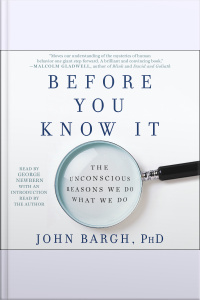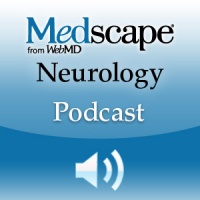Sinopsis
New research and clinical trials yield frequent developments in neuroscience and mental health. ReachMD welcomes an array of leading thinkers who lend their focused expertise to these principles, central to human function and ability.
Episodios
-
Importance & Benefits of Early Diagnosis
30/12/2022Host: Marc E. Agronin, MD Guest: Richard S. Isaacson, MD This series of bite-sized episodes contains important information you need to navigate the evolving world of Alzheimer’s disease (AD) research. Dr. Marc Agronin and Dr. Richard Isaacson discuss the recent advances in AD and provide practical approaches for prevention, diagnosis, and treatment.
-
Investigating the Adoption of Behavioral Health Integration
02/07/2020Host: Jennifer Caudle, DO Guest: Kathleen Blake, MD, MPH Guest: Peggy Chen, MD Behavioral health integration has proven to be an effective solution to improving access to treatment for many mental health conditions… So why is it not more prevalent in the medical community? Joining Dr. Jennifer Caudle to dive into the findings and implications of the joint AMA-RAND Corporation study recently published in the Annals of Internal Medicine are Dr. Kathleen Blake with the AMA and Dr. Peggy Chen from the RAND Corporation. And, click here to listen to a conversation regarding Behavioral Health Integration and its effect on clinical practice.
-
Keys to Avoiding an Adrenoleukodystrophy Misdiagnosis
06/02/2020Host: Mario R. Nacinovich, Jr., MSc Guest: Paul Orchard, MD Although it only affects about one in 18,000 people, the impacts of adrenoleukodystrophy cannot be underestimated. That’s why Dr. Paul Orchard joins Mario Nacinovich to talk about this rare—and fatal—genetic disease, why it’s often underdiagnosed and confused with other conditions, and how we can treat it once we’ve reached an accurate diagnosis.
-
Strategies for Success: Exercising Our Mental Muscle
06/06/2019Host: Brian P. McDonough, MD, FAAFP Guest: Kisma Orbovich Improvement is something we’re all constantly chasing, whether it’s in the form of a promotion, a bigger house, or maybe even an ideal weight. So why do we often fail miserably at these attempts to make our lives better? To get to the bottom of this dilemma, Dr. Brian McDonough is joined by Kisma Orbovich, the CEO of Illumination Academy, to reveal the secret to true success and how gratitude may just be the lifehack we’ve been searching for.
-
The Lasting Effects of Childhood Sexual Abuse: Fighting the Lifelong Battle
31/05/2019Host: Brian P. McDonough, MD, FAAFP Guest: Teresa Gil, PhD Since about 21 million mothers in America experienced sexual abuse in their childhood, there’s a good chance that some of these women are our patients. So as their physicians, how can we provide them with the best possible care as they continue to cope with the lifelong effects of sexual abuse? That’s what Dr. Brian McDonough explores with Dr. Teresa Gil, author of Women Who Were Sexually Abused as Children: Mothering, Resilience, and Protecting the Next Generation.
-
Detangling Difficult Conversations About Multiple Sclerosis: Clinical Exchanges
25/04/2019Host: Patricia K. Coyle, MD Guest: Clyde E. Markowitz, MD Please note: This activity is no longer available for continuing education credit. Multiple sclerosis (MS) is one of the leading causes of disability worldwide. As the treatment armamentarium continues to grow, patient involvement in the development of an effective treatment strategy is becoming increasingly important. In this Clinical ExchangesSM activity, leading MS specialists discuss issues of diagnosing MS, initiating treatment, and switching therapies, all in the context of practical shared decision-making techniques demonstrated by their own patients.
-
Bits from “Bullets and Brains”: The Challenge of Healing After a Headshot
11/04/2019Host: Andrew Wilner, MD, Author of "The Locum Life: A Physician's Guide to Locum Tenens" Even with quick thinking and timely action, the chances of a neurosurgeon being able to do more than taking out the bullet, administering antibiotics, and stopping the bleeding isn’t likely, and surviving a bullet to the brain can unfortunately be just the beginning of a patient’s struggles. Focusing on the title story of his book Bullets and Brains, Dr. Andrew Wilner discusses the serious aftermath congresswoman Gabrielle Giffords experienced while recovering from a headshot.
-
Bits from “Bullets and Brains”: Houston, We Have a (Health) Problem
11/04/2019Host: Andrew Wilner, MD, Author of "The Locum Life: A Physician's Guide to Locum Tenens" As a follow-up to the Microgravity: A New Risk Factor for Idiopathic Intracranial Hypertension essay he wrote back in 2012, Dr. Andrew Wilner investigates whether there have been any updates on the 27 astronauts who had significant microgravity exposure.
-
Delirium: The Hidden Disorder Plaguing ICU Patients
19/02/2019Host: Matt Birnholz, MD Guest: Wes Ely, MD, MPH After surviving a critical illness, many patients look forward to their lives returning to normal, but unfortunately, that’s not always possible. To uncover the far-reaching impacts of delirium, Dr. Matt Birnholz is joined by Dr. Wes Ely, Professor of Medicine and Co-Director of the Center for Critical Illness, Brain Dysfunction and Survivorship Center at Vanderbilt University’s School of Medicine which focuses on improving the lives and care of patients in the intensive care unit to ensure both physical and cognitive rehabilitation.
-
IQ vs. EQ: Is Emotional Intelligence Just as Important?
18/01/2019Host: Brian P. McDonough, MD, FAAFP Guest: David Neagle Is it possible that our environment and experiences have subconsciously programmed our emotional response to the world around us? Joining Dr. Brian McDonough is David Neagle, author of The Millions Within: Tips to Improve Emotional Intelligence, to offer advice on what impacts our emotional intelligence and the changes we can implement to strengthen our own. Produced in cooperation with:
-
Fight or Flight: Understanding Our Body's Response to Adrenaline
21/08/2018Host: Brian P. McDonough, MD, FAAFP In a time when humans walked among wild animals, the fight-or-flight response could've been the difference between eating dinner or being dinner. Today, however, the effect of this stress could be much more problematic for our society. In a review of his findings, Dr. Pratha Dutta joins Dr. Brian McDonough to focus on how our body and immune system react to sympathetic activation and what this might mean for some of your patients.
-
Beauty in the Broken Places: Memoir of Love, Faith, and Resilience
27/07/2018Host: Maurice Pickard, MD Guest: Allison Pataki Five months pregnant, on a flight headed for Hawaii, Allison Pataki's life took a sudden turn when she witnessed her husband, Dave Levy, lose consciousness. After an emergency landing and evaluation, Levy was found to have had suffered a rare stroke. When he woke the next day, he had amnesia, leaving the young couple holding onto hope for recovery. True to form, Pataki began to write letters to her husband—letters that became the foundation for Beauty in the Broken Places: A Memoir of Love, Faith, and Resilience.
-
FDA Warns of Serious Immune Reaction with Seizure/BPD Medicine Lamotrigine (Lamictal)
04/05/2018The Food and Drug Administration (FDA) is warning that the medicine lamotrigine (Lamictal) for seizures and bipolar disorder can cause a rare but very serious reaction that excessively activates the body’s infection-fighting immune system. This can cause severe inflammation throughout the body and lead to hospitalization and death, especially if the reaction is not diagnosed and treated quickly. A link to the full communication detailing specific information for health care professionals and a list of FDA-approved GBCAs can be found at www.fda.gov/Drugs/DrugSafety Released 4/25/2018
-
Detecting Depression: How to Assess Patients & the Benefits of TMS Treatment
30/04/2018Host: Brian P. McDonough, MD, FAAFP With a wide spectrum of symptoms, treating depression often becomes frustrating—not only for the patient, but for the primary care physician as well. Joining Dr. Brian McDonough is Dr. Paul Gross, founder of the TMS Center of Lehigh Valley, to address the difficulties of properly identifying depression. Throughout the discussion, Dr. Green also exposes the impactful therapy Transcranial Magnetic Stimulation (TMS), which has been linked to improving other diseases beyond depression.
-
High Price: How A Neuroscientist's Journey of Self-Discovery is Challenging Society's Perception on Drugs
19/02/2018Host: Maurice Pickard, MD Guest: Carl Hart, MD Carl Hart, who grew up in one of Miami’s toughest neighborhoods, escaped a life of crime and drugs and avoided becoming one of the crack addicts he now helps treat as the Chair of the Department of Psychology at Columbia University. His landmark, controversial research is redefining our understanding of addiction and demonstrates how personal experience and scientific study can inform and validate each other for a deeper understanding of human behavior and addiction. Host Dr. Maurice Pickard talks with Dr. Hart, author of the book High Price, about the relationship between drugs and pleasure, choice, and motivation, both in the brain and in society. They explore how his research sheds new light on common ideas about race, poverty, and drugs, and explain why current policies are failing.
-
Dr. Bennett Omalu on the Dangers of Concussions and CTE
19/01/2018Host: Shira Johnson, MD Guest: Bennett Omalu, MD Many studies have demonstrated long-lasting and even permanent brain damage that can originate from just one concussion. With athletes suffering multiple repeated head traumas due to high-contact sports, the controversies over player safety and long-term health risks remain hot-button issues. Pathologist Dr. Bennett Omalu coined the term "CTE" and published the first evidence for chronic traumatic encephalopathy after autopsying American football players. In this second of a two-part interview, he shares his perspectives on CTE in athletes and the lifelong dangers of contact sports.
-
The Autopsy that Changed American Sports: Dr. Bennett Omalu and the Story of CTE
19/01/2018Host: Shira Johnson, MD Guest: Bennett Omalu, MD Chronic Traumatic Encephalopathy (CTE) is a degenerative brain disease found in athletes, military veterans, and others who experience repetitive brain trauma. Pathologist Dr. Bennett Omalu coined the term "CTE" and published the first evidence for this condition after autopsying American football players. Host Dr. Shira Johnson welcomes Dr. Omalu to share the story of his discovery and the medical, athletic, and public responses that followed.
-
Concussions and Blast Injuries in War: How to Protect our Military Personnel
11/12/2017Host: Andrew Wilner, MD, Author of "The Locum Life: A Physician's Guide to Locum Tenens" There is still a great deal to learn about the long term effects of blast injuries on military personnel. Emerging evidence suggests that exposure to a blast can produce both overt and subtle neurological consequences in the brain, but much remains unknown. Host Dr. Andrew Wilner is joined by Dr. Jack Tsao, Director of Traumatic Brain Injury Programs for the US Navy Bureau of Medicine and Surgery, and Professor of Neurology at the University of Tennessee Health Science Center. He is a Captain in the United States Navy, and an expert in detection and prevention of traumatic brain injury in active duty military personnel.
-
Beyond Medication: Treatment Options for Drug-Resistant Epilepsy
11/12/2017Host: David Weisman, MD It is estimated that approximately 30% of epilepsy patients are drug-resistant, meaning their seizures do not successfully respond to anti-seizure medications. What other treatment options are available to patients who aren’t responding to medication? Host Dr. David Weisman chats with Dr. Lara Marcuse, Co-Director of Mount Sinai Epilepsy Center, about new and emerging treatment options for epilepsy.
-
Altering the Collision Course: Protective Effects of Omega-3 Intake on Concussions
05/12/2017Host: Brian P. McDonough, MD, FAAFP There is nearly a 20% chance that each of us will suffer a concussion this year. More concerning yet, over 30% of those concussions will lead to a long-term, potentially permanent disability. Many studies have explored how the use of Omega-3 fatty acids may add some measure of resilience within the brain to withstand injury in those at significant risk. Host Dr. Brian McDonough chats with Dr. Michael Lewis, founder of the nonprofit Brain Health Education and Research Institute about how the utilization of Omega-3 fatty acids may facilitate the concussion healing process and relieve symptoms.













